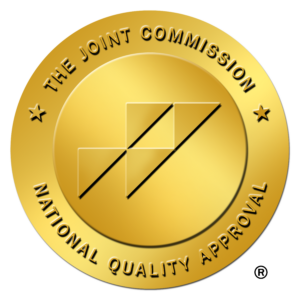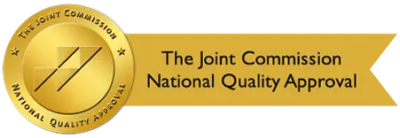Eating Disorders Unveiling the Masks, Understanding the Struggle
Eating Disorders Unveiling the Masks, Understanding the Struggle
An eating disorder is a serious mental illness characterized by abnormal eating habits that negatively impact a person’s physical and mental health.
Eating disorders. The term might conjure images of young women obsessed with weight and calorie counting. But the reality is far more complex, shrouded in secrecy, shame, and a desperate struggle for control. These are real illnesses, impacting people of all ages, genders, and backgrounds, silently wreaking havoc on their minds and bodies.
According to the National Eating Disorders Association (NEDA), 9% of the US population, or 28.8 million Americans will have an eating disorder in their lifetime. And while eating disorders are more common in women, they can also affect men and children.
NEDA is committed to addressing this lack of representation by prioritizing funding research grants which attempt to address the inequities in eating disorder research.
Delving into the Maze:
Eating disorders manifest through a web of signs and symptoms that extend far beyond food and weight.
Be mindful of these red flags:
- Drastic weight changes, erratic eating patterns, secretive binges, purging behaviors (vomiting, laxatives, excessive exercise), or extreme pickiness can signal trouble.
- Preoccupation with weight, distorted body perception, relentless self-criticism, and an intense fear of weight gain are often present.
- Social withdrawal, mood swings, fatigue, difficulty concentrating, or substance abuse might indicate deeper issues.
- Shame.
An eating disorder is a serious mental illness characterized by abnormal eating habits that negatively impact a person’s physical and mental health.
Eating disorders. The term might conjure images of young women obsessed with weight and calorie counting. But the reality is far more complex, shrouded in secrecy, shame, and a desperate struggle for control. These are real illnesses, impacting people of all ages, genders, and backgrounds, silently wreaking havoc on their minds and bodies.
According to the National Eating Disorders Association (NEDA), 9% of the US population, or 28.8 million Americans will have an eating disorder in their lifetime. And while eating disorders are more common in women, they can also affect men and children.
NEDA is committed to addressing this lack of representation by prioritizing funding research grants which attempt to address the inequities in eating disorder research.
Delving into the Maze:
Eating disorders manifest through a web of signs and symptoms that extend far beyond food and weight.
Be mindful of these red flags:
- Drastic weight changes, erratic eating patterns, secretive binges, purging behaviors (vomiting, laxatives, excessive exercise), or extreme pickiness can signal trouble.
- Preoccupation with weight, distorted body perception, relentless self-criticism, and an intense fear of weight gain are often present.
- Social withdrawal, mood swings, fatigue, difficulty concentrating, or substance abuse might indicate deeper issues.
- Shame.

“At Allendale, we aim to help our clients heal the wounds “driving” their behaviors and strengthen their core sense of self. Only then are they able to manage and alleviate the symptoms and behaviors that have caused such immense suffering.”
Recognizing Signs and Symptoms:
While the specific signs and symptoms can vary depending on the type of eating disorder, here are some key areas to be aware of:
Eating Habits:
Significant changes in weight: Rapid weight loss (especially in anorexia) or gain (especially in binge-eating disorder) can be a red flag.
Unusual eating patterns: Avoiding entire food groups, skipping meals, eating in secret, hoarding food, or rigid meal routines can be signs of disordered eating.
Binge eating: Consuming large amounts of food in a short time, often followed by feelings of guilt or shame.
Purging behaviors: Vomiting, laxative misuse, excessive exercise, or other methods to rid the body of food after eating.
Picky eating: Extreme restrictions based on texture, color, or other non-nutritional factors.
Constant checking of weight: Mirror obsession, comparing oneself to others.
Distorted body image: Seeing oneself as much larger or smaller than reality.
Negative self-talk: Harsh criticism of appearance, feeling worthless due to perceived body flaws.
Fear of gaining weight: Even at a healthy weight, the individual may be terrified of weight gain.
Emotional and Behavioral Changes:
Social withdrawal: Isolating oneself from friends and family to avoid social situations involving food.
Mood swings: Irritability, anxiety, depression, low self-esteem.
Fatigue and lethargy: Due to malnutrition or disrupted sleep patterns.
Difficulties concentrating: Eating disorders can significantly impact school, work, or daily activities.
Substance abuse: Using alcohol or drugs to cope with difficult emotions or numb physical sensations.
It’s important to remember that not everyone will experience all of these signs and symptoms, and the severity can vary greatly. If you notice any of these signs in yourself or someone you know, it’s essential to seek professional help for a proper diagnosis and treatment plan.

Here are some of the different types of eating disorders:
- Anorexia nervosa: Characterized by severe weight restriction, intense fear of weight gain, and a distorted body image.
- Bulimia nervosa: Characterized by cycles of binge eating followed by purging behaviors.
- Binge-eating disorder: Characterized by frequent episodes of uncontrolled eating, often followed by guilt and shame.
- Avoidant/Restrictive Food Intake Disorder (ARFID): Characterized by severe restrictions on food intake due to sensory aversions, fear of choking, or other concerns not related to weight or shape.
Eating disorders can have serious consequences if left untreated, including:
- Nutrient deficiencies and medical complications
- Mental health problems like depression and anxiety
- In severe cases, even death
“Eating disorders are more than just disordered eating habits. Mental health plays a significant role in the development and persistence of eating disorders.”
Common links include:
Anxiety and depression: These conditions can fuel a desire for control and lead to disordered eating as a coping mechanism.
Obsessive-compulsive disorder (OCD): The rigid thoughts and behaviors characteristic of OCD can manifest in fixations on food, weight, and rituals around eating.
Post-traumatic stress disorder (PTSD): Trauma can disrupt healthy eating habits and trigger disordered behaviors as a way to manage difficult emotions. ANAD reports that a disturbingly high number of female military personnel and veterans – over 16% – have experienced an eating disorder. These disorders are often linked to experiences of sexual trauma and PTSD. The National Institute of Mental Health further highlights the issue, finding that eating disorders affect nearly 30 million Americans at some point in their lives.
The secrecy and stigma surrounding eating disorders often lead to intense shame, further isolating individuals and hindering their journey towards recovery. It’s crucial to challenge these harmful misconceptions and create a more supportive environment.
Addressing Misconceptions:
Eating disorders can affect people of all ages, genders, races, ethnicities, and body types. While certain groups may be more at risk due to societal pressures, it’s crucial to recognize that anyone can develop an eating disorder. They are not a choice or a sign of weakness. Shaming or blaming someone with an eating disorder only worsens the situation.
Harmful Stereotypes
Shattering harmful stereotypes and fostering compassion are key to supporting those with eating disorders. Professionals and loved ones alike can cultivate this by seeking education, promoting open communication about mental health and body image, and actively listening without judgment.
Remember, recovery is a journey, not a destination and seeking professional help is crucial. There will be challenges and setbacks, but with the right support and unwavering self-compassion, you can achieve lasting healing and find peace with your relationship with food and body.
If you or someone you know is struggling with an eating disorder, please seek help. There is no shame in asking for help, and treatment can be very effective.
Verify Your Coverage Here
Here are some resources that can help:
- National Eating Disorders Association (NEDA): https://www.nationaleatingdisorders.org/
- National Association of Anorexia Nervosa and Associated Disorders (ANAD): https://anad.org/
- The National Institute of Mental Health (NIMH): https://www.nimh.nih.gov/
"*" indicates required fields







